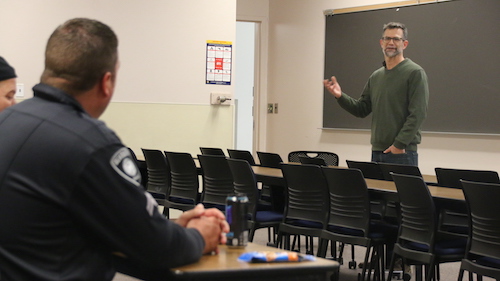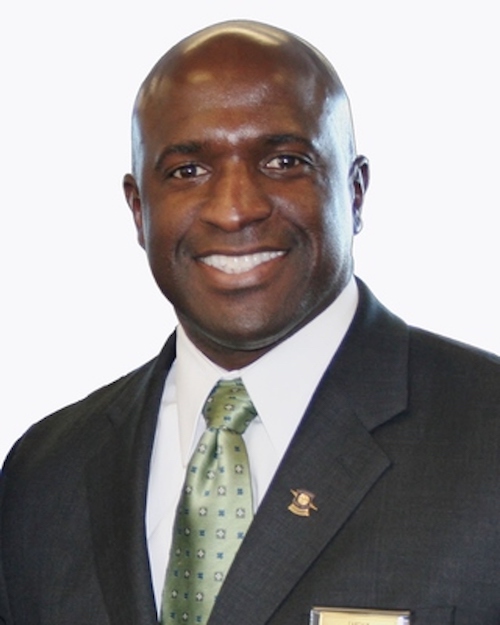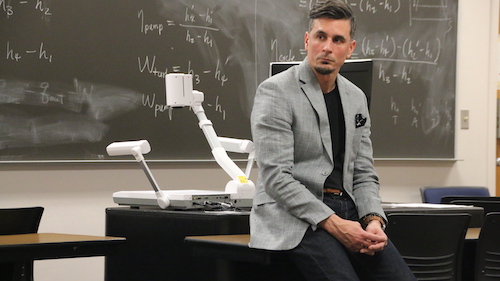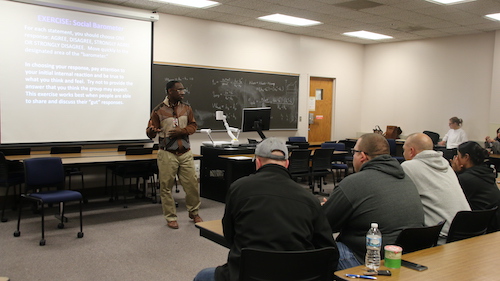Name: Bishop Daryl Harris, Human Rights commissioner for the City of Detroit, CeaseFire faith-coordinator, Total Life Christian Ministries pastor
Topic of AVF session: Sanctity of Life and the Policing Experience
You work on Detroit’s East side. What are you seeing in your community?
The Black Lives Matter Movement has spread across the world after George Floyd’s murder and people are speaking out in Detroit too. I've worked with police and with protestors for the past few weeks. No one knew what to expect and a curfew was put in place to curb violence and property damage, but that was dismissed after Police Chief (James) Craig saw that demonstrations were peaceful. I’m not at liberty to speak on it in detail, but I will say difficult conversations are being had and it is recognized by the Detroit Police Department that a culture change mindset is needed. Even though the movement is still in the beginning stages, it’s having an effect.
Why do you think Detroit's protests have been peaceful in relation to other major areas?
Chief Craig has a record of holding officers accountable and is big on neighborhood policing, where an officer has a long-term assignment in a particular area to get to know the residents better and for the residents to get to know an officer. He knows it’s about seeing each other as human beings. Our police department is not perfect, but Detroit residents know Chief Craig calls it as he sees it and responds accordingly.
In my opinion, the Black Lives Matter Movement loses direction if we head into violence or destruction and our community knows this. The system’s injustices are deeply ingrained and there are people who want to burn it all down and start over, but that’s not what’s going to get us to our destination. Even though I don’t encourage rioting and it is not a long-term solution in my opinion, it is important to note that it did take the threat of the world burning to draw attention to George Floyd’s death and police brutality that Black and Brown people experience.
If the goal is truly equity, we need to think bigger than our personal experiences and focus on the direction of the Movement. If you talk to 10 Black people, you will get 10 different experiences and all may have a very valid point of view or argument — but if we focus on our personal struggles and not the collective one, long-term change will not come.
You are in a unique situation — you are a Detroit community leader and an honorary member of the Detroit Police Department. You even have a badge. For people who might not understand, can you give a Black perspective on interaction with law enforcement?
Well, I can tell you it was a bit shocking to see protestors storm the State Capitol over the governor's emergency order. White men holding rifles, no masks and yelling in the faces of law enforcement in a government building while officials were inside. Speaking with other Black members in my community, we had a similar thought: ‘Wait, you can do that and live?’ It reinforces some of the experiences we’ve had with law enforcement on being treated differently because of the color of our skin.
And can you give a perspective of what it’s like to be an officer in your community?
It can seem very us vs. them on both sides. As soon as I got my Detroit Police Department badge, I had cousins who didn’t want me invited to family gatherings. Not because of who I was as a person, but because family members had negative interactions with police and it was seen that I chose to be a part of the police community. My goal is to remove the idea of separate communities, like police and citizens, and help create one community that we all happen to live within.
So how does that happen?
You need to recognize that there are bad actors in every community. And instead of trying to imprison them or defund them, try to connect them to help because they are part of your community. That doesn’t mean they shouldn't be held accountable. People need to take responsibility for their actions. But, at the same time, our community needs to do more than expel someone who does wrong. Human beings are not trash. But sometimes they are broken through trauma and need to be restored.









